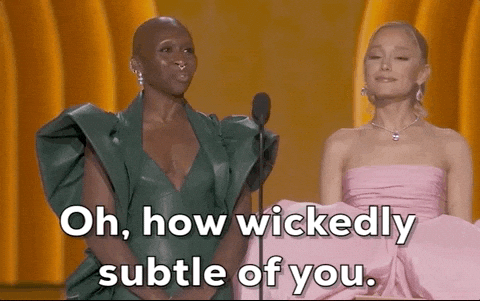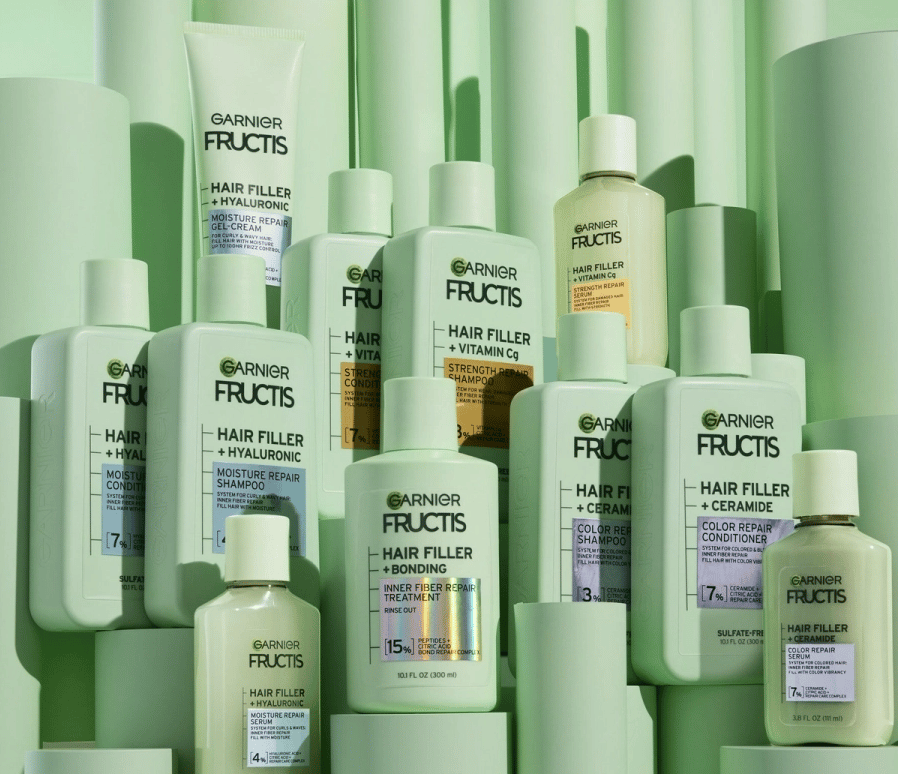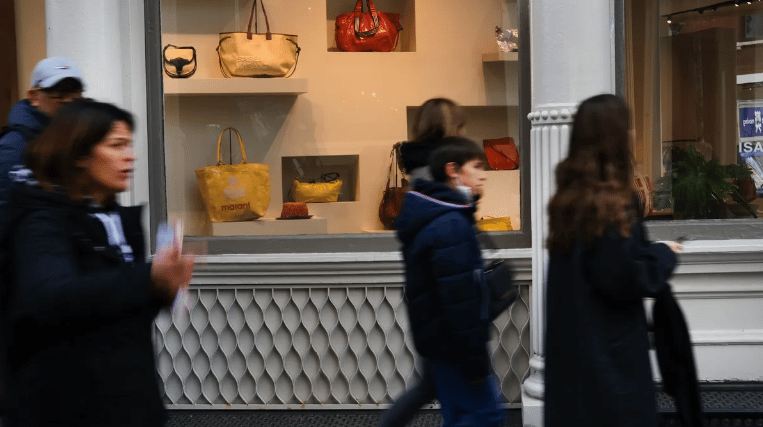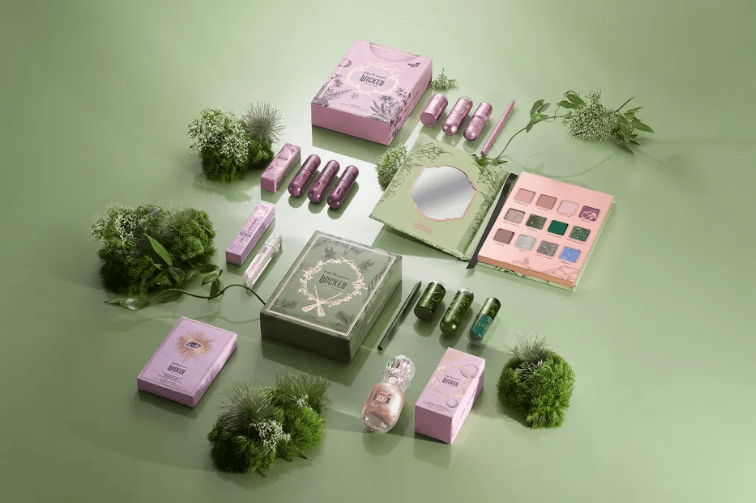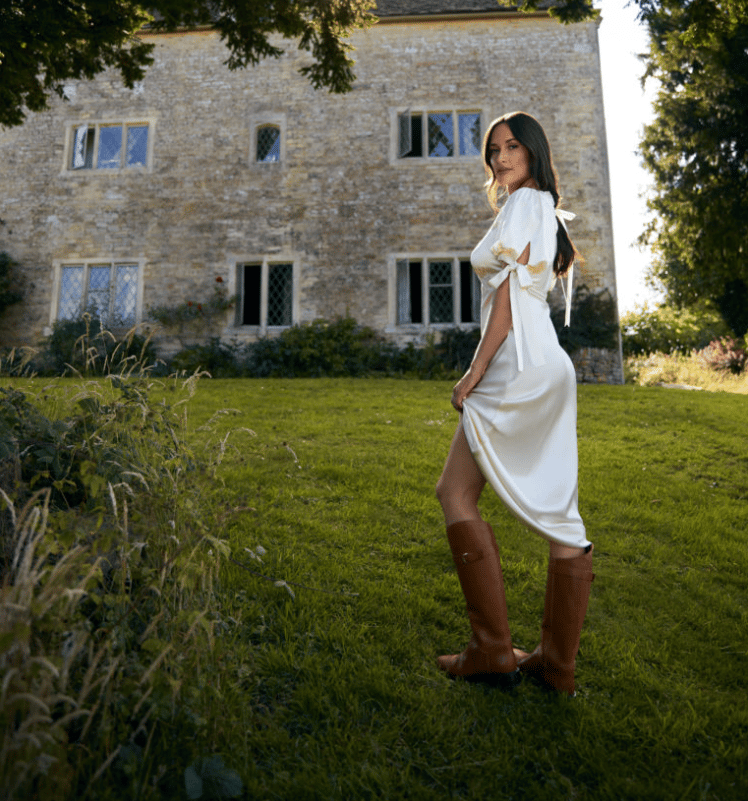♎ Welcome to Libra Season!
This week in DTC Dispatch:
💄 Mass beauty brands are going premium as the gap between channels narrows
👕 Streetwear brands offer younger consumers a ‘gateway’ to luxury: report
🎵 Ariana Grande’s R.E.M. Beauty Announces ‘Wicked’ Collection: Here’s What’s Included & When It Drops
💉 Pfizer, joining Lilly, enters the direct-to-consumer market with a telehealth and prescription platform
👗 Kacey Musgraves Brings Cottagecore to Reformation
LATEST NEWS
Mass beauty brands are going premium as the gap between channels narrows
As budget-conscious consumers look for better value, many opt for cheaper products or private labels in various CPG categories. However, beauty shopping habits have been different, and brands are taking notice.
In the first half of 2024, US prestige beauty sales grew by 8%, while mass market sales remained flat, according to Circana. Larissa Jensen, global beauty industry advisor at Circana, explained that premium-priced products within the mass market are “growing at a much healthier rate,” while lower-priced items have slowed. Even in traditionally mass-dominated categories like hair care, consumers are favoring higher-priced products, with items priced over $30 growing three times faster than their cheaper counterparts.
At the same time, mass brands are pushing for premiumization. Companies like L’Oréal, Unilever, and Not Your Mother’s have seen sales growth after launching higher-end skin care and hair care products. As consumer preferences shift and brands adjust, the gap between mass and prestige beauty may be closing.
Our take: The beauty industry is undergoing a fascinating shift, as consumers continue to favor higher-priced products despite broader economic pressures. While budget-conscious shopping often leads to more affordable options in many categories, beauty has become an exception. The steady growth in prestige beauty sales, coupled with the rise of premium-priced products within the mass market, reflects a shift in consumer priorities—people are willing to invest more in products that promise higher quality, innovation, or better results.
This trend signals a narrowing gap between mass and prestige brands. Mass-market companies like L’Oréal and Unilever are capitalizing on the shift by launching elevated products that blur the lines between affordability and luxury. This premiumization of mass brands is an acknowledgment that consumers are seeking more from their beauty routines, even at a higher cost.
It also highlights the evolving role of beauty in self-care. Consumers seem increasingly willing to spend on items that enhance their personal well-being, especially in categories like skin and hair care. As brands continue to innovate and cater to these changing expectations, the distinction between mass and prestige is likely to become less pronounced. Ultimately, this evolution is reshaping how we think about beauty products—less as simple commodities and more as investments in personal confidence and care.
OUR SPONSOR
BFCM is the peak season for DTC brands.
Unfortunately, it's also the peak season for fraudsters.
Many DTC merchants prioritize BFCM conversion strategies but neglect fraud protection, leaving their businesses vulnerable.
Mastercard reported a 35% increase in eCommerce fraud during last year's BFCM period and a total yearly loss of $48 billion.
Don't underestimate the importance of fraud prevention; download "The Ultimate Fraud Prevention Checklist for BFCM" to ensure your business is primed to protect its bottom-line profit.
Download the checklist for free
Streetwear brands offer younger consumers a ‘gateway’ to luxury: report
According to a new report from real estate and investment firm JLL, streetwear brands are becoming a gateway for younger generations to enter the luxury market by strategically placing their stores near high-end retail areas.
The report outlines luxury retail trends, noting that streetwear brands such as A Bathing Ape, Kith, and Palm Angels have recently opened stores in prestigious locations like Chicago’s Gold Coast, Malibu, and New York’s SoHo.
Citing Bain & Co., the report also highlights the growing influence of younger and more diverse consumers in shaping the future of luxury spending, predicting that Generation Z and millennials will account for over 70% of global luxury purchases by 2030.
Our take: The placement of streetwear brands near luxury retail spaces marks a key shift in the luxury market. As JLL's report highlights, brands like A Bathing Ape, Kith, and Palm Angels are blending street culture with high fashion by opening stores in upscale areas. This reflects the changing preferences of younger, more diverse consumers.
For Gen Z and millennials, luxury is about authenticity, exclusivity, and cultural relevance, not just wealth. Streetwear, rooted in self-expression, resonates with these values. By moving into luxury corridors, streetwear brands are aligning with this new definition of luxury.
With Gen Z and millennials expected to make up over 70% of global luxury purchases by 2030, luxury brands must adapt. Streetwear brands are leading the way by combining high fashion with youth culture. This trend shows that the future of luxury will be more inclusive and driven by younger generations.
Ariana Grande’s R.E.M. Beauty Announces ‘Wicked’ Collection: Here’s What’s Included & When It Drops
Ariana Grande’s R.E.M. Beauty is launching a limited-edition makeup collection inspired by Wicked. The collection includes a range of products, such as shimmering eyeshadows, blush, lipsticks, lip oil, and skincare items like under-eye masks and hydrating drops.
Grande announced the collection on Instagram on Wednesday (Sept. 18), sharing her excitement. “I’m emoooooootional. I cannot, cannot wait for this one,” she commented. “This team has truly outdone themselves.”
The nine-piece collection draws inspiration from Wicked's themes and characters, featuring sets like the Galinda Makeup Set ($60), Elphaba Makeup Set ($60), and the Ozdust palette ($55), a 12-shade eyeshadow palette inspired by Glinda and Elphaba. The palette offers a mix of long-lasting, high-impact shades, including duochromes, metallics, velvety mattes, icy blues, playful pinks, and powerful greens.
The Galinda Makeup Set includes liquid eyeshadow, blush, lipstick, and eyeliner inspired by Glinda’s iconic looks, while the “thrillifying” Elphaba Makeup Set features similar products in bold emerald and green tones, along with a color-changing lip balm.
Our take: Ariana Grande’s R.E.M. Beauty Wicked-inspired makeup collection is a smart blend of pop culture and beauty, capturing the essence of the musical while appealing to both makeup enthusiasts and Wicked fans. With its thoughtfully curated products like shimmering eyeshadows and bold lipsticks, the collection plays on the contrast between Glinda's soft, ethereal looks and Elphaba's bold, rebellious aesthetic. This duality allows consumers to experiment with a wide range of styles, from playful and delicate to daring and dramatic.
The limited-edition aspect adds an element of exclusivity, tapping into the current beauty market's obsession with unique, themed collections. Ariana Grande’s emotional connection to Wicked further enhances the appeal, making the collection feel personal and passionate. Fans of both Grande and the musical are likely to be drawn in by the nostalgia and cultural significance.
Ultimately, the collection offers more than just makeup—it delivers a thematic experience that resonates with the fantasy and drama of Wicked, encouraging self-expression through beauty. By combining strong product quality with a beloved story, R.E.M. Beauty continues to strengthen its brand identity and capture the imagination of its audience.
Pfizer, joining Lilly, enters the direct-to-consumer market with a telehealth and prescription platform
On Tuesday, Pfizer announced plans to enter the direct-to-consumer market, following a similar move made by rival Eli Lilly earlier this year.
Pfizer’s new platform, PfizerForAll, aims to streamline access to its migraine treatments, vaccines, and respiratory virus treatments like those for COVID-19 and the flu. While the platform focuses on Pfizer products, the company maintains that the final choice of treatment will still be made by healthcare providers.
Aamir Malik, Pfizer's chief U.S. commercial officer, explained to Yahoo Finance that the goal is to simplify access to medication. "Our healthcare system is complex, time-consuming, and overwhelming. We want to eliminate the stress of navigating it, especially when patients or their loved ones need timely care," Malik said.
Our take: Pfizer’s launch of its direct-to-consumer platform, PfizerForAll, reflects a shift toward meeting consumer demand for easier healthcare access. By offering streamlined access to treatments for migraines, respiratory viruses, and vaccines, Pfizer addresses frustrations with the current complicated healthcare system.
While some may question if this focuses too much on Pfizer’s products, the company emphasizes that healthcare providers will still guide treatment decisions. This approach aims to ease patient stress without bypassing medical oversight.
As companies like Pfizer and Eli Lilly adopt this model, the challenge will be ensuring these platforms simplify access while maintaining transparency and patient autonomy.
Kacey Musgraves Brings Cottagecore to Reformation
Step aside, Bella Hadid—there’s a new “horse girl” in town. Country-pop star Kacey Musgraves has partnered with Reformation to launch a collection that blends country chic with cottagecore vibes.
Musgraves brings her signature Western flair to the collection, featuring a range of pastoral dresses, earthy matching sets, and denim separates. Staying true to Reformation’s sustainability focus, the pieces are crafted from eco-friendly materials like regenerative wool and recycled cashmere.
The collection’s release also aligns with Musgraves’ “Deeper Well World Tour,” making it ideal for everything from farm strolls to dancing the night away.
Our take: Kacey Musgraves' collaboration with Reformation blends country chic and cottagecore, reflecting her personal style and the growing trend of Western-inspired fashion. The collection stands out for its eco-conscious design, using materials like regenerative wool and recycled cashmere, aligning with Reformation’s sustainability goals.
Launching alongside Musgraves' “Deeper Well World Tour,” the collection feels authentic and taps into the trend of music-fashion collaborations. Its versatility, suitable for both farm days and nights out, caters to modern consumers seeking both style and function, making it a responsible take on the rising "horse girl" and cottagecore trends.
Thanks for reading this week’s edition of the DTC Dispatch!
